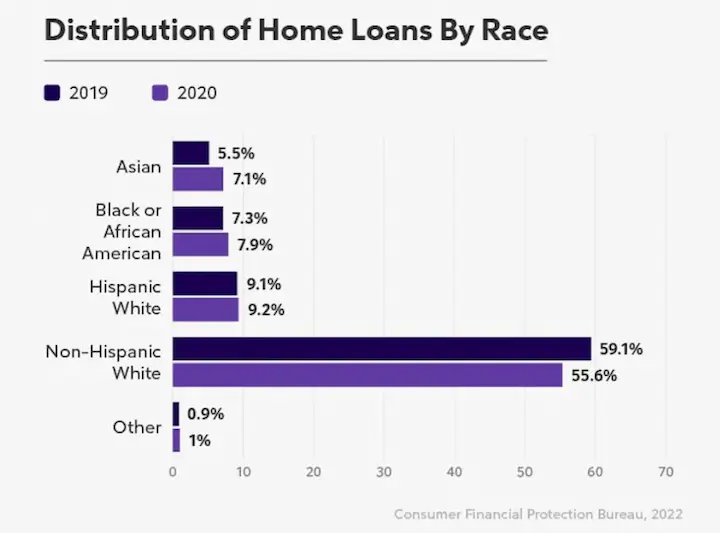What Is A Housing Loan?
Housing loans are financing used to purchase or refinance residential real estate. Homebuyers take housing loans to pay for their home purchases. At the same time, homeowners use Housing loans to access the equity they have built in their homes. Borrowers must repay their loan principal and interest over time according to predetermined terms. Housing loans allow individuals and families to become owners without having all the necessary cash upfront, making it easier for people with limited resources to purchase a residence.
How Do Housing Loans Work?
A housing loan is a financial product that helps individuals purchase their own homes. It allows borrowers to take a loan from a lender and pay back the borrowed amount with interest over an agreed period which helps people who cannot afford to buy the property outright or do not have sufficient savings to cover all costs associated with purchasing a home.
Obtaining a housing loan involves submitting an application form detailing personal information such as income, assets, and credit history. The lender assesses data to decide if to provide the loan and, if so, at what interest rate. The higher your credit score and other favorable indicators on your application, the lower the interest rate is offered. The borrower makes regular payments until fully repaid, including the principal sum and any accrued interest payable.
What Is the Average Interest Rate of a Housing Loan?
The current average interest rate for a 30-year housing loan is 6.95%, according to Bankrate. The average interest rate for 30-year fixed refinances is 7.03% for homeowners looking to refinance. The national average 15-year refinance rate is 6.30%.
| Mortgage Type | Average Interest Rate | Scenario |
| 30-year fixed | 6.95% | Current average interest rate |
| 30-year fixed refinance | 7.03% | The average interest rate for homeowners looking to refinance |
| 15-year fixed refinance | 6.30% | National average 15-year refinance rate |
What are the Types Of Housing Loans?
Housing loans are one of the most common types of financial instruments used by individuals for their home purchase or renovation needs. The market offers various products and services from which borrowers can choose the best option. It includes variable-rate home loans, fixed-rate home loans, interest-only home loans, construction loans, and refinancing loans.
Interest-only Home Loan
An interest-only home loan is a mortgage that allows borrowers to pay only the interest for a certain period, usually five to ten years. The borrower is not required to make any principal payments which result in lower monthly payments. The borrower must start making principal payments which increase the monthly payments significantly. Interest-only home loans usually have a fixed interest rate for the first few years, after which the rate adjusts annually. Interest-only home loans are available to borrowers with good credit and a sizable down payment and are attractive to investors or individuals with irregular income streams. Borrowers must carefully consider the risks associated with interest-only loans, including the potential for payment shock when the principal payments start.
Construction Loans
The construction mortgage is tailor-made for people who have decided it’s cheaper and more straightforward (or just a preference) to build from scratch rather than buying an existing house within the exact location where a person intends to live. The construction phase duration period varies according to lender requirements. However, as soon as construction ends, either you built yourself or bought something pre-existing, borrowers start repaying according to their chosen regular & recurring payment plan and move into their new homes.
Refinancing Loan
People refinance their loans to obtain more favorable terms than people initially offered with their primary mortgage as their credit history has improved. It allows them to save money by consolidating all their existing debt into one larger loan, subject to better interest rates. Refinancing loans add an extra layer of complexity because lenders must know both new & existing debts before agreeing. It pays off slowly since, much like any other housing contract, fees are associated with/derived from closing costs that need covering over time.
What are the Benefits Of A Housing Loan?
A housing loan is a financial instrument that has existed for centuries yet remains an invaluable asset to people seeking shelter. It allows people to access and purchase their homes through installments made over time, a concept as old as human civilization. A housing loan is a type of financial assistance that helps people purchase a home or property. People can own their own homes without having all the funds upfront. People can borrow the money needed to purchase the property and pay it back with interest, making it easier for people to achieve their dream of owning a home and providing them with a sense of stability and security. Homeownership provides long-term financial benefits, such as building equity and potentially increasing value over time.
What are the Low Barriers to Housing Loans?
The concept of low-barrier housing loans has had a long-standing presence within the discourse on affordable housing. Housing loans benefit borrowers who cannot pay large sums upfront to qualify and close on a loan. Borrowers have greater access to the financial resources needed when purchasing a home by removing barriers such as credit score minimums or high down payments.
Conclusion
Housing loans are designed to help individuals and families purchase or refinance residential real estate. Housing loans offer various benefits, including low-interest rates and long repayment periods, making them a popular financial instrument for shelter seekers. There are different types of housing loans, including variable rate, fixed rate, interest-only, construction, and refinancing loans, each tailored to meet specific needs. Obtaining a housing loan requires applicants to complete an application and submit documents that lenders analyze before approval. Choosing a loan that best fits one’s budget and needs is necessary while being mindful of the financial responsibilities involved.
Frequently Asked Questions
What is a housing loan, and how does it differ from other types of loans?
Housing loans finance the purchase or construction of a home. Types include mortgages, home equity loans, and home equity lines of credit secured by residential property.
Can you explain the various types of housing loans available to homebuyers, and what are their key features?
Types include conventional, FHA, VA, and USDA mortgages with varying down payment and credit requirements. Home equity loans tap existing property equity, usually at higher rates.
What are the benefits of taking out a housing loan for prospective homebuyers?
Benefits include making home ownership affordable by financing the purchase over time. Interest is usually tax deductible. Loans build equity as the mortgage is paid down.
How can individuals with a low credit score or limited income explore housing loan options with low barriers to entry?
Options like FHA loans, VA loans, USDA loans, and down payment assistance programs can help those with challenges secure home financing.
Are there any specific government programs or initiatives that offer housing loans with favorable terms for first-time homebuyers?
Programs like FHA loans, VA loans, USDA loans, and down payment assistance like the NeighborhoodLIFT program offer favorable mortgage terms for first-time buyers.


